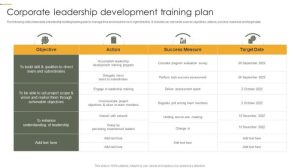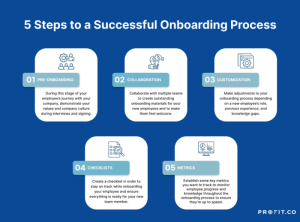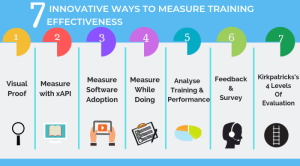
Investing in employee development is no longer a luxury; it’s a strategic imperative for sustained business success. Corporate training workshops offer a dynamic and effective approach to upskilling your workforce, fostering collaboration, and ultimately driving organizational growth. This exploration delves into the multifaceted world of corporate training, examining design, implementation, and measurement of effective programs.
From crafting engaging curricula and selecting appropriate delivery methods (in-person, online, or blended) to leveraging technology for enhanced learning experiences, we’ll cover the key aspects of designing and delivering impactful training. We’ll also explore the crucial role of budget allocation, resource management, and effective facilitation in ensuring successful workshop outcomes and a positive return on investment.
Defining Corporate Training Workshops

Corporate training workshops are focused learning experiences designed to enhance employee skills, knowledge, and performance within an organization. They offer a structured approach to delivering specific training content, often involving interactive activities and practical application. These workshops differ from broader training programs by their concentrated focus and shorter duration.Corporate training workshops are a crucial component of a comprehensive learning and development strategy, contributing significantly to organizational success.
They provide a targeted and efficient way to address specific skill gaps, improve team cohesion, and boost overall productivity.
Types of Corporate Training Workshops
Various types of corporate training workshops cater to diverse organizational needs. These workshops can be categorized based on their subject matter, target audience, or learning objectives. For example, some common types include sales training workshops focusing on improving sales techniques and closing deals; leadership development workshops aimed at enhancing managerial skills and fostering effective leadership; technical skills training workshops focused on specific software, equipment, or processes; and compliance training workshops ensuring employees understand and adhere to relevant regulations.
The specific type of workshop will be determined by the organization’s strategic goals and the identified training needs.
Benefits of Corporate Training Workshops
Incorporating workshops into a corporate training strategy yields several key benefits. Workshops facilitate knowledge transfer through interactive sessions, leading to improved knowledge retention compared to passive learning methods. They also promote collaborative learning, enabling employees to share experiences and learn from each other. Furthermore, workshops allow for immediate feedback and adjustments to the training content, ensuring its relevance and effectiveness.
Finally, workshops contribute to improved employee morale and engagement by providing opportunities for professional development and growth. A well-designed workshop can directly translate to increased productivity, reduced errors, and improved customer satisfaction.
Formats and Delivery Methods for Corporate Training Workshops
Corporate training workshops can be delivered in various formats to accommodate different learning styles and organizational contexts. In-person workshops offer the advantage of direct interaction and immediate feedback between the trainer and participants. However, they can be expensive and logistically challenging to organize, especially for geographically dispersed teams. Online workshops, delivered through virtual platforms like Zoom or WebEx, overcome geographical limitations and can be more cost-effective.
However, they may lack the same level of engagement as in-person workshops and require participants to have reliable internet access and technological proficiency. Blended learning approaches combine elements of both in-person and online learning, leveraging the strengths of each format to create a more comprehensive and engaging learning experience. For instance, a blended approach might involve an initial online module followed by an in-person workshop for practical application and collaborative activities.
The optimal delivery method will depend on the specific workshop content, target audience, and available resources.
Workshop Content & Curriculum Design

Effective corporate training hinges on meticulously planned and engaging workshop content. A well-structured curriculum ensures participants gain valuable skills and knowledge, leading to improved performance and organizational success. This section details sample curricula and agendas for various corporate training workshops.
Leadership Skills Workshop Curriculum
This curriculum Artikels a three-day workshop focusing on developing essential leadership skills. Each day builds upon the previous one, creating a comprehensive learning experience.
- Day 1: Foundational Leadership Principles: Exploring leadership styles, ethical considerations, and the importance of self-awareness. Activities include self-assessment questionnaires and group discussions on real-life leadership scenarios.
- Day 2: Effective Communication & Motivation: Developing strategies for clear and persuasive communication, understanding motivational theories, and practicing active listening techniques. Activities include role-playing exercises and group presentations.
- Day 3: Strategic Decision-Making & Team Building: Learning frameworks for strategic decision-making, understanding team dynamics, and developing conflict resolution skills. Activities include case studies and team-based problem-solving challenges.
Engaging Activities and Exercises for a Communication Skills Workshop
Effective communication training requires a blend of theoretical understanding and practical application. The following activities foster active participation and skill development.
- Active Listening Exercise: Participants practice active listening techniques by listening to a short presentation and then summarizing the key points. Feedback is provided on their ability to accurately capture information and demonstrate understanding.
- Nonverbal Communication Role-Play: Participants engage in role-playing scenarios that focus on interpreting and using nonverbal cues effectively. This helps them understand the impact of body language and tone of voice.
- Public Speaking Practice: Participants prepare and deliver short presentations, receiving constructive feedback from peers and the instructor. This exercise builds confidence and improves presentation skills.
- Feedback and Coaching Session: Participants provide and receive constructive feedback on their communication skills, learning how to give and receive feedback effectively.
One-Day Workshop Agenda: Improving Team Collaboration
This agenda Artikels a structured one-day workshop designed to enhance team collaboration skills. The focus is on practical application and immediate skill improvement.
- Morning Session (9:00 AM – 12:00 PM): Introduction to team dynamics, understanding team roles, and identifying common collaboration challenges. Activities include group discussions and interactive exercises.
- Lunch Break (12:00 PM – 1:00 PM): Networking and informal discussion.
- Afternoon Session (1:00 PM – 4:00 PM): Strategies for effective communication within teams, conflict resolution techniques, and building trust and rapport. Activities include case studies, role-playing, and team-building exercises.
Effective Time Management Workshop Content
This workshop utilizes a modular approach to teach effective time management strategies.
| Module | Topic | Activity | Duration |
|---|---|---|---|
| Module 1: Understanding Time | Time Audit & Analysis | Self-assessment questionnaire and group discussion | 1 hour |
| Module 2: Prioritization Techniques | Eisenhower Matrix & Pareto Principle | Interactive exercise applying prioritization methods to real-world scenarios | 1.5 hours |
| Module 3: Planning & Scheduling | Goal Setting & Time Blocking | Individual planning session and group feedback | 1 hour |
| Module 4: Procrastination & Productivity | Identifying Procrastination Patterns & Implementing Solutions | Group discussion and brainstorming session | 1 hour |
| Module 5: Review & Action Planning | Creating a Personalized Time Management Plan | Individual action planning and sharing of goals | 30 minutes |
Ultimately, the success of corporate training workshops hinges on a strategic alignment between training objectives and business goals. By meticulously designing engaging content, leveraging technology effectively, and meticulously tracking results, organizations can unlock the full potential of their workforce, fostering a culture of continuous learning and driving significant improvements in productivity, retention, and overall competitiveness. Investing in well-designed corporate training workshops is not just an expense; it’s an investment in the future success of your company.
Quick FAQs
What is the ideal workshop size for optimal engagement?
The ideal size varies depending on the workshop’s objective and format. Smaller workshops (10-15 participants) generally foster more interaction, while larger workshops (20-30) might require more structured activities to maintain engagement.
How can I ensure my workshop content remains relevant and up-to-date?
Regularly review and update your workshop content based on industry trends, technological advancements, and feedback from participants. Incorporate current case studies and real-world examples to maintain relevance.
How do I measure the long-term impact of a corporate training workshop?
Track key performance indicators (KPIs) related to employee performance, productivity, and retention over several months following the workshop. Conduct follow-up surveys to assess sustained knowledge and skill application.
What are some common mistakes to avoid when planning a corporate training workshop?
Common mistakes include poor planning, inadequate budget allocation, neglecting participant feedback, and failing to align training objectives with business goals. Prioritize clear objectives, thorough planning, and continuous evaluation.




